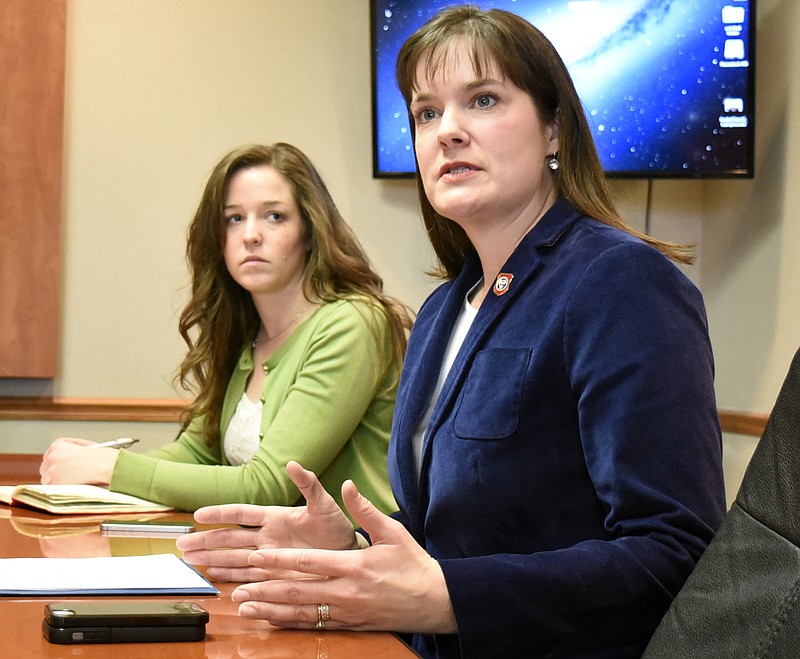Tennessee Education Commissioner Candice McQueen is holding several meetings this week with community stakeholders and the Hamilton County school board members who represent the district's five lowest-performing schools.
McQueen said the closed-door meetings allow her a chance to hear from the people closest to the five schools, known as priority or iZone schools, as the state decides how to best intervene in coming months.
"I want you to know how important the voices are that I just listened to for an hour and a half," McQueen said during a news conference outside Hamilton County Mayor Jim Coppinger's office. "...We want to make sure we have the chance to share information with people directly who will be partners with us in whatever work we do in our schools."
The five schools -- Brainerd High, Dalewood Middle, Woodmore Elementary, Orchard Knob Middle and Orchard Knob Elementary -- have struggled to post academic progress in the past five years, despite more than $10 million in additional state funds. Test scores for this past school year have not been released and are expected in coming weeks.
Because of the lack of academic progress, the state is legally obligated to intervene in the schools.
McQueen previously told the board it needs to decide whether it wants to move toward establishing the state's first Partnership Zone or allow her office to place at least some of the schools in the state-run Achievement School District.
The state proposed the Partnership Zone as a way to provide this cluster of schools with additional autonomy and support.
Karitsa Mosley Jones, who represents three of the priority schools on the Hamilton County Board of Education, selected a group of people from her district to meet with McQueen and members of her staff Monday afternoon.
After the meeting, Jones said during the news conference that she is open to discussing options that allow the schools to remain under Hamilton County's control and not be taken over by the state.
"Any option other than the ASD is something I am willing to explore, as I truly believe Hamilton County can ... educate our own students," she said during the news conference. "We don't need anyone to tell us how to do that."
McQueen previously said the Partnership Zone would have its own board, with 60 percent of the members selected by the state and 40 percent selected by Hamilton County Schools. The board would have between seven and 10 members and would appoint a separate director for those schools.
But members of the Hamilton County school board have voiced concern about the plan, specifically that the state will name a majority of the Partnership Zone's board members.
McQueen also previously told the school board that the state would make an investment in the Partnership Zone, as it has run out of additional grant money to support the schools. But board members worry the state will not contribute enough, and the Partnership Zone will add an additional strain on the district's budget.
For the Partnership Zone to be successful, Hamilton County Schools and the state would have to take responsibility and be held accountable for outcomes in these schools, McQueen previously said.
See tomorrow's Times Free Press for the full story.
